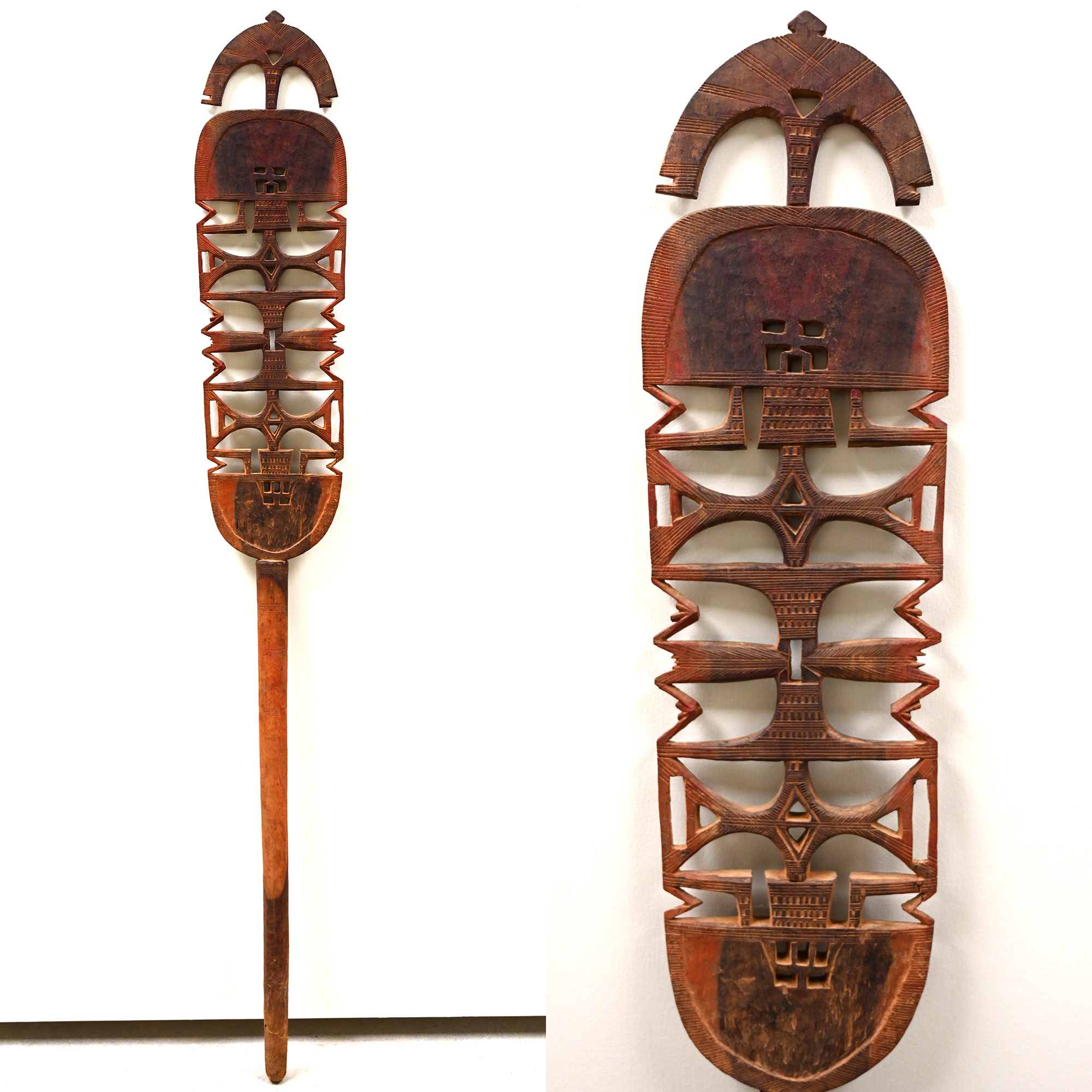Tuareg Ehel Tent Post

The Tuareg are a seminomadic people who live in the Saharan region of North Africa, including Niger, Mali, Algeria, Libya, and Burkina Faso. This ehel tent post is from Mali. Traditionally, the Tuareg live in tents known as ehen. The tents are made from goat skins or fiber mats sewn together and are often given to a new bride by her mother. Hence, the word ehen also means marriage. The tents are stretched over arched wooden frames and secured to the ground with small stakes. Fitting with a nomadic lifestyle, the tents can be easily disassembled and packed with all other belongings when a group is ready to move to the next stop.
Ehel tent posts, like this one, are used inside the tent to hold up woven mats, known as eseber, which are placed around the parents’ sleeping area to create privacy and better define the tent’s interior space. Other types of posts are used to erect the tent, support the walls, and to hang bags and clothing.
A woodworker typically carves an ehel tent post from a single piece of very hard wood, creating a symmetrical overall form with intricately carved geometric designs on both sides. The designs indicate tribe, clan, and family affiliation. The detail of the carving indicates that these are prestige pieces used for both decoration and practical purposes.
Many Tuareg no longer practice a nomadic lifestyle, and as a result, tents and their associated objects are no longer used frequently in daily life.
Other objects from Mali that have been featured for Artifact of the Month include a Dogon ladder, a Dogon mask, and a Bamana water container.
